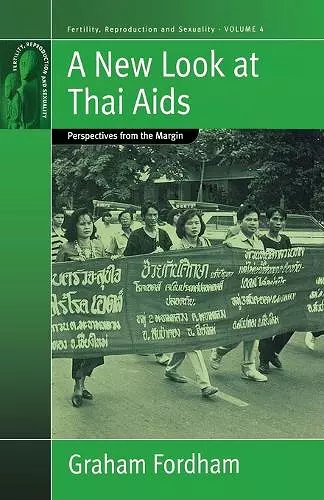A New Look At Thai Aids
Perspectives from the Margin
Format:Paperback
Publisher:Berghahn Books
Published:1st Mar '06
Currently unavailable, and unfortunately no date known when it will be back

Following the detection of the first HIV infections in the early 1980s, by the 1990s Thailand was routinely depicted as having the world’s fastest moving HIV/AIDS epidemic. However, by the early 2000’s the bulk of scholarly and medical AIDS literature portrayed the epidemic as being largely under control, and claimed that Thai AIDS prevention efforts during the 1990s had been successful. Based on long-term ethnographic research conducted in Northern Thailand this book makes an in-depth study of the social construction of Thailand’s HIV/AIDS epidemic over this period. In addition to his own field research the author draws on an extensive corpus of English and Thai language social science and medical HIV/AIDS literature to examine the modeling of Thailand’s AIDS epidemic, and addresses concepts and issues such as risk groups, risk behaviour, alcohol use, gender and class, masculinity, the scapegoating of female prostitutes and men in the underclass, the reporting of the HIV/AIDS epidemic in Thailand’s indigenous Thai language media, and sexual activity amongst Thai youth. The analysis demonstrates the contribution of anthropology as an interpretative social science, and the use of anthropological theory and research methods, to finding alternative ways of framing the problems of Thai AIDS and of posing new questions that will lead to more effective points of intervention. It emphasises the necessity for critically reflexive approaches that question the ‘taken for granted’ and demonstrates how qualitative research techniques guided by social theory have the potential to take account of local meanings in complex social contexts where traditional values and cultural practices are rapidly transforming due to economic and social change. The book offers a sustained and powerful criticism of the limitations of the normative model of the Thai AIDS epidemic and, in its aim of promoting critically reflexive AIDS research techniques in order to produce a better understanding of issues ‘on the ground’ and hence better health policy and more effective AIDS interventions, speaks not only to the Thai AIDS epidemic but to AIDS epidemics throughout Southeast Asia and elsewhere.
This is the only English language study of Thailand’s HIV/AIDS epidemic to draw on long-term qualitative research in Northern Thailand as well as on a broad range of Thai (and some Khmer language) materials. Its contextualised and subtly nuanced analysis...
“This hired-gun ethnographer is refreshingly angry…Fordham will make most anthropologists proud to be one…he shakes up complacent, comfortable, trivialized anthropology and valorizes its special methods and value to HIV and AIDS prevention initiatives.” · Reviews in Anthropology
“Fordham’s analysis questions the validity and currency accorded by researchers to a range of myths regarding Thai society that, he argues, underpin research on and the modelling of Thai AIDS…Fordham argues cogently for a reappraisal of how research on Thai HIV/AIDS might be better undertaken and calls for a culturally informed and nuanced approach to the design and implementation of AIDS research and behavioural modification programmes…this monograph has wider relevance than HIV/AIDS in Thailand and is apposite as a contribution to the debates regarding future directions for anthropology, applied or otherwise.” · The Asia Pacific Journal of Anthropology
ISBN: 9781845452339
Dimensions: unknown
Weight: 399g
338 pages